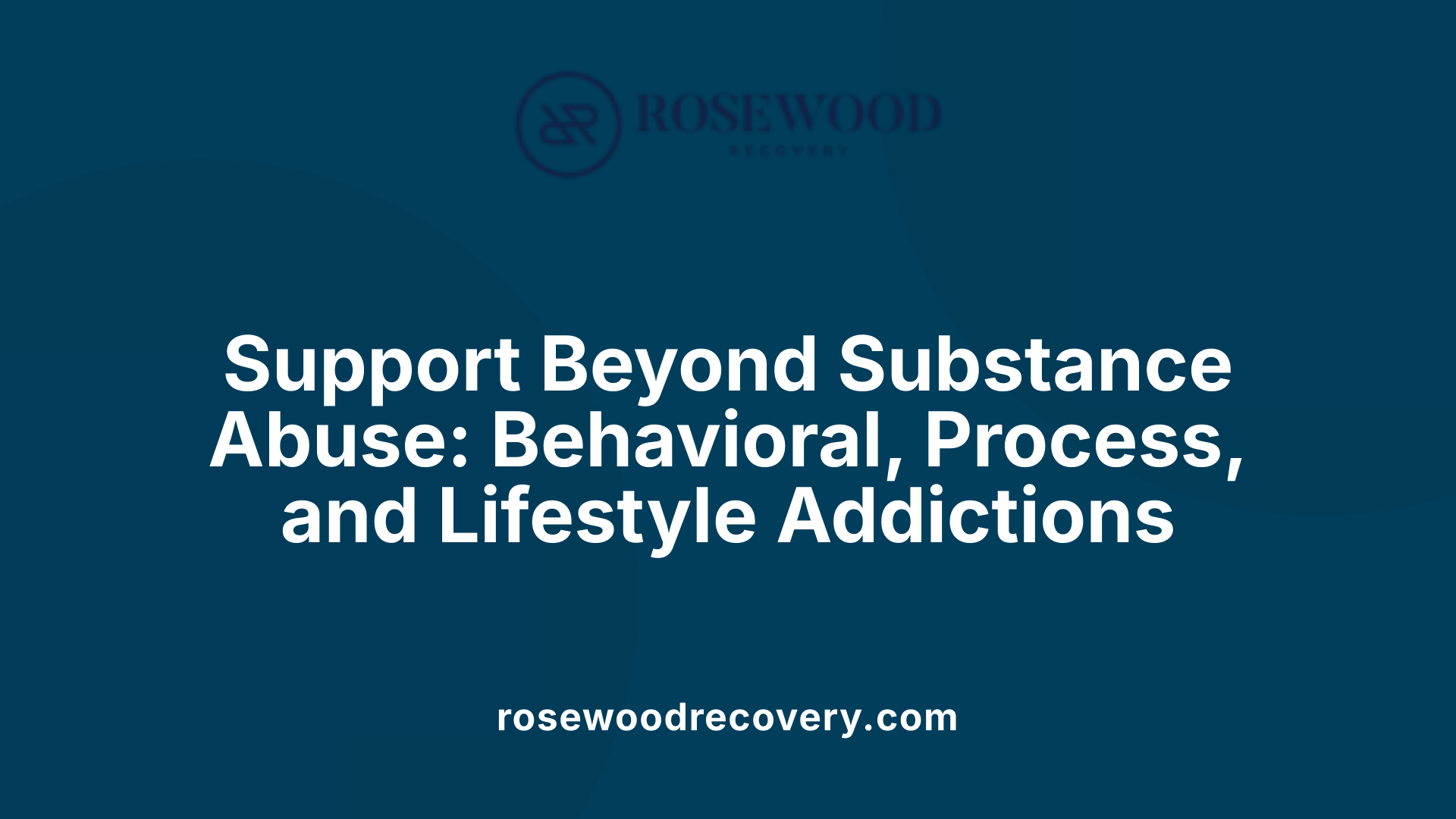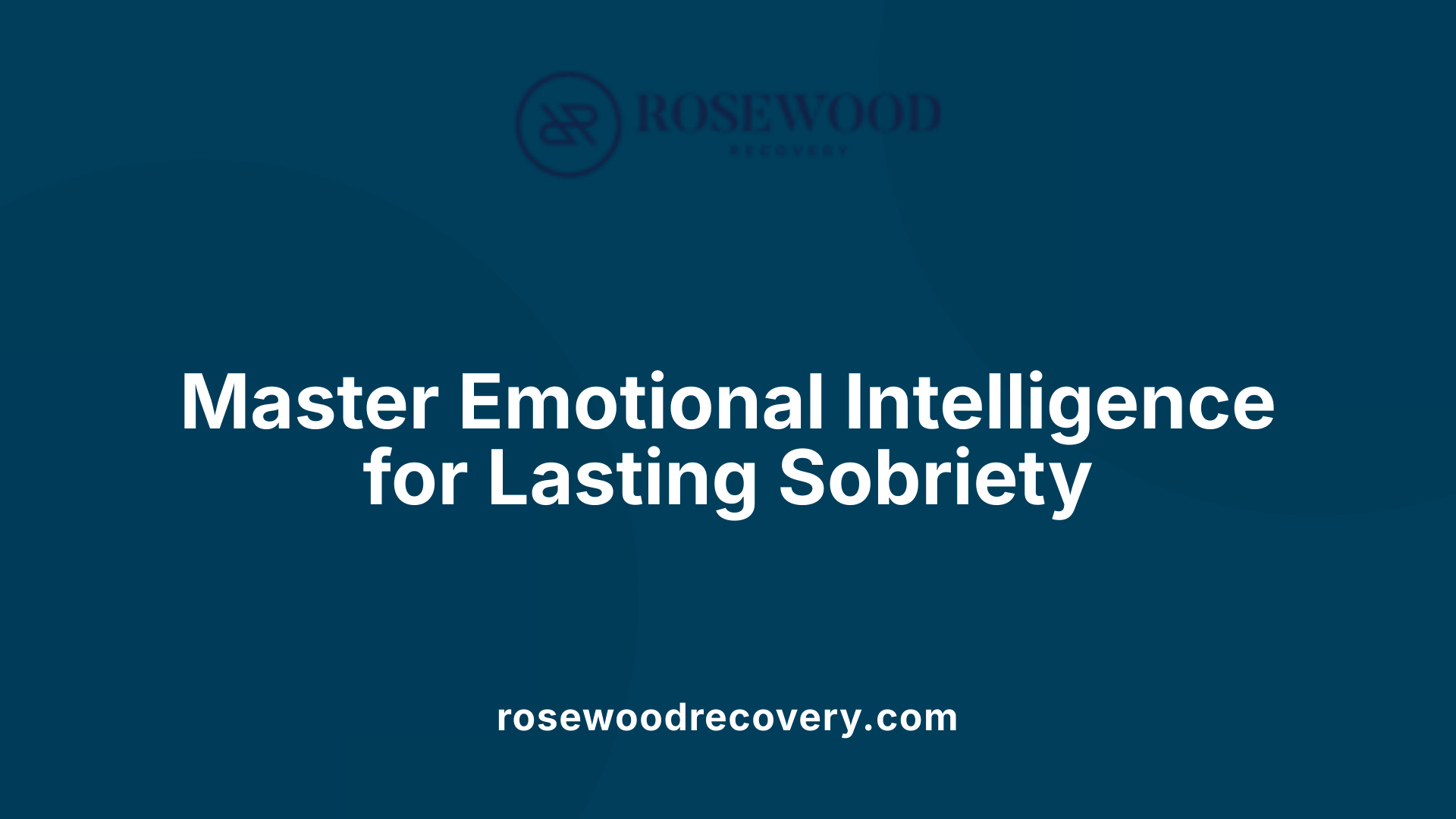Understanding Emotional Integrity in Recovery
Emotional integrity—the ability to acknowledge, express, and manage one’s true feelings—is a fundamental aspect of successful outpatient rehab programs. For individuals battling substance abuse and various addictions, cultivating emotional honesty breaks the cycle of emotional suppression and relapse. This article explores why nurturing emotional integrity is essential in outpatient rehabilitation, highlighting comprehensive treatment services, the role of emotional intelligence, and strategies that foster long-term sobriety and mental health stability.
Comprehensive Treatment Services: Addressing Addiction and Mental Health Holistically

What comprehensive treatment services are available for substance abuse and mental health issues?
Comprehensive treatment services for substance abuse and mental health issues are designed to address the complex interplay between addiction and mental health disorders through a range of personalized and integrated approaches. These services typically include medical detoxification, inpatient and outpatient rehabilitation, and specialized therapeutic interventions tailored to individual needs.
Many treatment centers provide evidence-based therapies such as Cognitive Behavioral Therapy (CBT) and Dialectical Behavior Therapy (DBT), both of which support emotional regulation and address distorted thought patterns that can contribute to substance use and relapse. Motivational interviewing and intrinsic motivation techniques help sustain recovery by fostering a personal commitment to change.
How are co-occurring disorders treated?
Co-occurring disorders, where mental health conditions like depression, anxiety, or PTSD accompany addiction, require a comprehensive treatment strategy that simultaneously targets both issues. Treatment centers often offer integrated care plans that include therapy, medication management, and holistic approaches—such as mindfulness and support groups—to improve mental health and reduce relapse risk.
Addressing these disorders together enhances emotional resilience, coping skills, and overall mental well-being, which are critical to sustaining long-term sobriety.
What support systems are present in rehab?
Support in rehab environments is multifaceted, encompassing peer support groups, family involvement, and professional counseling. Group therapy sessions emphasize empathy development and improve social skills, fostering healthier relationships essential for recovery.
Tools like journaling, mindfulness training, and open communication forums encourage emotional honesty and self-expression. These platforms provide safe spaces for individuals to share feelings, confront underlying pain, and rebuild trust with themselves and others.
What therapy modalities are used?
The therapeutic modalities commonly used include:
| Therapy Type | Focus Areas | Benefits in Recovery |
|---|---|---|
| Cognitive Behavioral Therapy (CBT) | Identifying and challenging distorted thoughts | Reduces emotional avoidance; promotes healthier responses |
| Dialectical Behavior Therapy (DBT) | Emotional regulation, mindfulness | Helps manage intense emotions and improves coping skills |
| Motivational Interviewing | Enhancing intrinsic motivation | Encourages commitment to sobriety and personal growth |
| Group Therapy | Empathy, social skills | Builds support networks and improves communication |
These therapies are often complemented by individualized counseling and psychiatric care, enabling comprehensive management of addiction and mental health issues.
In summary, comprehensive treatment services provide a robust framework that addresses both substance abuse and mental health holistically. By integrating medical, psychological, and social support, these programs pave the way for sustained recovery and improved quality of life.
Beyond Substance Abuse: Treating Various Forms of Addiction Effectively

How do treatment programs address various forms of addiction beyond substance abuse?
Addiction treatment programs use a multidisciplinary approach to care for different addiction types, including behavioral and process addictions such as gambling, gaming, and compulsive behaviors. These programs tailor interventions to the specific challenges faced by individuals depending on the addiction type.
Evidence-based therapies play a central role in this approach. Cognitive Behavioral Therapy (CBT) helps individuals identify and change harmful thought patterns and behaviors, while motivational interviewing encourages internal motivation to support sustained recovery efforts. Additionally, Dialectical Behavior Therapy (DBT) offers tools for managing intense emotions and improving emotional regulation, which is especially valuable across various addiction forms.
Relapse prevention strategies are integrated throughout treatment to empower individuals with skills to recognize triggers and manage cravings effectively. These strategies commonly involve ongoing support through group and individual counseling sessions, which help maintain accountability and foster healthy coping skills.
Treatment settings vary according to individual needs and addiction severity, ranging from outpatient programs that allow clients to maintain daily routines to more intensive inpatient or residential care for complex cases often co-occurring with mental health conditions. Medication-assisted treatment may also be incorporated if applicable to the specific addiction.
Continuing care and aftercare services are vital components following initial treatment, providing long-term support, relapse prevention maintenance, and reinforcing healthy lifestyle choices. Family involvement and peer support groups enhance social support networks, improving the chances of sustained recovery.
By utilizing comprehensive, evidence-based treatments and emphasizing relapse prevention and ongoing care, addiction treatment programs effectively support recovery from a wide range of addictive behaviors beyond substance abuse.
The Role of Emotional Honesty in Breaking the Addiction Cycle

What is Emotional Honesty and Why Is It Important?
Emotional honesty in addiction recovery means recognizing and openly expressing your true feelings. This includes confronting deep emotional pain, guilt, shame, or fear rather than hiding or ignoring them. Being emotionally honest helps individuals break free from the secrecy and dishonesty that often accompany active addiction, fostering authenticity in relationships and strengthening support systems.
How Does Emotional Suppression Act as a Coping Mechanism?
Many people struggling with substance use rely on suppressing emotions as a way to cope. Over time, this becomes a habit where feelings like stress and frustration are ignored or numbed by alcohol or drugs. Unfortunately, this suppression keeps the cycle of addiction going by avoiding the real issues.
What Impact Does Emotional Honesty Have on Relapse and Recovery?
Addressing emotions openly during recovery significantly reduces the risk of relapse. Expressing previously unacknowledged feelings allows individuals to develop healthier coping strategies. Therapies such as Cognitive Behavioral Therapy (CBT) and Dialectical Behavior Therapy (DBT) support this process by helping people identify distorted thoughts, regulate intense emotions, and practice mindfulness.
Incorporating techniques like journaling, open communication, and participation in support groups enhances emotional self-awareness and expression. These tools not only improve communication and rebuild trust in relationships damaged by addiction but also foster a stronger foundation for long-term sobriety.
| Aspect | Description | Role in Recovery |
|---|---|---|
| Emotional Honesty | Acknowledging and expressing true feelings | Breaks secrecy, builds trust, supports authentic relationships |
| Emotional Suppression | Avoiding or numbing feelings | Maintains addiction cycle, increases relapse risk |
| Therapy Support | CBT, DBT, mindfulness techniques | Helps regulate emotions, challenge negative thoughts |
| Expression Techniques | Journaling, group therapy, open communication | Facilitates emotional awareness and healthier coping |
Developing Emotional Intelligence Skills to Sustain Sobriety

How do self-awareness, self-regulation, and motivation support sobriety?
Self-awareness in addiction recovery means recognizing and understanding one’s emotions and their impact on behavior and relationships. This understanding enhances resilience and promotes healthier decision-making. Self-regulation complements this by helping individuals manage emotions without suppression, which is essential for handling stresses, cravings, or conflicts without turning to substances. Motivation, particularly intrinsic motivation driven by personal growth rather than external rewards, fuels sustained recovery efforts and commitment.
Which therapies enhance emotional regulation during recovery?
Therapies such as Cognitive Behavioral Therapy (CBT) and Dialectical Behavior Therapy (DBT) play crucial roles. CBT assists in identifying and challenging distorted thoughts that cause avoidance of emotions, fostering healthier emotional responses. DBT focuses on managing intense emotions through mindfulness and practices that improve emotional regulation, making it easier to cope with triggers and maintain sobriety.
How do building empathy and social skills contribute to recovery?
Developing empathy strengthens relationships with family, friends, and support groups, which are vital for ongoing support in recovery. This skill is often nurtured in group therapy settings and helps cultivate understanding and connection. Strong social skills enable effective communication, clearer expression of feelings and needs, and the establishment of healthier interpersonal relationships, all foundational for long-term sobriety.
What tools can enhance emotional self-awareness and expression?
Techniques like journaling, mindfulness practices, and participation in support groups provide practical ways to explore and express emotions openly. Journaling helps individuals track their feelings and triggers, mindfulness cultivates present-moment awareness and emotional regulation, while support groups offer safe spaces to share experiences and gain insight.
These components work together to build emotional intelligence, which underpins the ability to sustain sobriety by improving emotional management, motivation, and social connectivity during recovery.
Integrating Mental Health Support to Strengthen Emotional Integrity
Why Treating Co-Occurring Mental Health Disorders Matters
Many individuals facing addiction also struggle with mental health issues such as depression, anxiety, or PTSD. These co-occurring disorders can complicate recovery, making it essential to address both addiction and mental health simultaneously. Without treating underlying psychological conditions, efforts toward sobriety may be less effective or short-lived.
Building Emotional Resilience Through Mental Health Care
A strong mental health foundation promotes emotional resilience, which is crucial during recovery. Improved coping skills and the ability to manage stress and setbacks help individuals navigate triggers without relapsing. Emotional integrity grows when mental health is actively supported, allowing clearer recognition and expression of feelings.
Holistic Strategies to Prevent Relapse
Comprehensive approaches include therapies like CBT and DBT, medication management when necessary, and lifestyle changes such as mindfulness and physical wellness routines. These strategies collectively enhance emotional regulation and reduce the risk of substance cravings by managing emotional distress.
Professional mental health support, including therapy and support groups, also plays a vital role in building healthy relationships and developing emotional intelligence, both of which are protective factors in sustaining long-term recovery.
The Path Forward: Authenticity and Comprehensive Care in Outpatient Rehab
Emotional integrity is not just an aspect of recovery; it is a vital foundation upon which lasting sobriety is built in outpatient rehab settings. By embracing emotional honesty, developing emotional intelligence, and integrating comprehensive mental health and addiction treatment services, individuals can break free from the cycles of relapse and emotional suppression. Outpatient rehabilitation programs that prioritize these elements offer the best chance for individuals to rebuild trust, improve relationships, and sustain recovery. The journey to sobriety thus becomes not only about abstaining from substances but also about facing and understanding one’s emotions authentically and compassionately, fostering hope and resilience for a healthier future.
References
- The Power of Emotional Honesty in Addiction Recovery
- Most Important Emotional Intelligence Skills in Recovery
- Building Emotional Intelligence in Addiction Rehab
- Emotional Honesty in Recovery - TruHealing Centers
- What Role Does Mental Health Play in Recovery?
- Home | SAMHSA - Substance Abuse and Mental Health ...
- What Types of Addiction Treatment are Available?
- Substance Use Disorder (SUD): Symptoms & Treatment


.jpeg)

